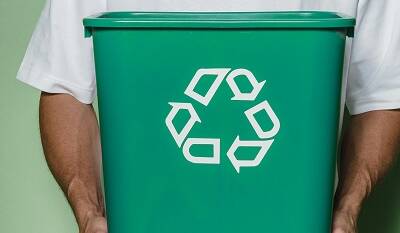Drain Cleaning Services: Essential Solutions for a Clog-Free Home
Clogged drains can lead to more than just inconvenience; they can cause serious damage to a home’s plumbing system. Drain cleaning services effectively remove blockages and ensure healthy drainage, preventing costly repairs down the line. By utilizing specialized tools and techniques, these professionals can address a variety of issues, from minor obstructions to major backups.
Homeowners often overlook the importance of regular drain maintenance. Routine cleaning can significantly extend the lifespan of plumbing systems. Engaging a drain cleaning service not only resolves immediate problems but also promotes optimal functioning for the long term.
Understanding when to seek professional help is crucial. Signs such as slow drainage, unusual smells, or gurgling sounds may indicate underlying issues that require expert attention. Prompt action can save homeowners from the stress and expense of emergency repairs.
Comprehensive Guide to Drain Types and Common Clogs
Understanding the different types of drains and their associated blockages is essential for effective maintenance and cleaning. This guide addresses residential and commercial drainage systems, along with common clogging issues.
Residential Drain Systems
Residential drain systems typically include kitchen drains, bathroom sinks, toilets, and floor drains. Each of these systems serves a distinct function and can experience specific types of clogs.
Kitchen drains often accumulate grease, food particles, and soap scum. Bathroom sinks and toilets are prone to hair and hygiene products creating blockages. Floor drains in basements or laundry rooms can clog from dirt, debris, and lint accumulation. Regular maintenance is advised, including using strainers and avoiding dumping unsuitable materials down these drains.
Commercial Drainage Varieties
Commercial properties feature more complex drainage systems than residential structures. They encompass floor drains, trench drains, and grease interceptors.
Floor drains are found in areas like restaurants and warehouses, efficiently collecting water and debris. Trench drains are beneficial for large surface areas, channeling excess water away. Grease interceptors are mandatory in food establishments to prevent fat buildup that can lead to severe clogs. Each type requires specific cleaning protocols to mitigate obstruction risks.
Identifying Frequent Obstructions
Common blockages in both residential and commercial drains can stem from various materials. Recognizing these can aid in timely interventions.
- Hair – A prevalent issue in bathroom sinks and shower drains.
- Food Waste – Often clogs kitchen sinks, especially if not properly disposed of.
- Oil and Grease – Commonly found in kitchen drains, leading to significant buildup.
- Soap Residue – Can accumulate in any drain, contributing to solid blockages.
- Foreign Objects – Items like toys or paper can cause immediate stoppage.
Identifying the type of blockage is crucial for selecting appropriate drain cleaning methods. Regular inspections can help mitigate these problems before they necessitate professional services.
Best Practices in Drain Maintenance and Cleaning
Effective drain maintenance and cleaning involves a combination of routine care, professional techniques, and environmental consideration. Implementing these best practices can prevent clogs and maintain optimal drainage efficiency.
Routine Drain Maintenance Tips
Regular maintenance helps keep drains flowing smoothly. It is essential to perform monthly checks on all household drains.
- Hot Water Flush: Pouring hot water down the drain can help dissolve grease.
- Strainers and Screens: Install them in sinks and shower drains to catch hair and debris.
- Periodic Cleaning: Use a mix of baking soda and vinegar monthly for a natural cleaner that can minimize buildup.
In addition, avoid dumping chemicals or oils down the drain. These can cause blockages and damage pipes. Keeping a log of maintenance activities can help track any recurring issues.
Professional Drain Cleaning Techniques
For tougher clogs, professional drain cleaning may be necessary. Experts use various methods to address complex issues.
- Hydro Jetting: This technique employs high-pressure water to clear stubborn blockages.
- Snaking: A plumber’s snake can remove clogs caused by hair, soap, and other debris.
- Camera Inspections: Using a small camera, professionals can identify the source of blockage without invasive procedures.
Scheduling professional cleaning every year or two can prevent significant issues. Proper techniques ensure that drains are not only cleared but also maintained for long-term health.
Environmental Considerations in Drain Care
Being mindful of what goes down the drain is crucial for environmental health. Certain products can be harmful to waterways.
- Biodegradable Cleaners: Opt for eco-friendly alternatives to harsh chemicals.
- Limit Use of Chemical Drain Cleaners: These can harm plumbing systems and the environment alike.
- Conscious Disposal: Dispose of non-biodegradable items properly instead of flushing them.
By practicing sustainable drain care, individuals contribute to the community’s overall well-being. Small changes can lead to significant environmental benefits over time.
Copper Stock: Analyzing Market Trends and Investment Potential in 2025
Investors seeking to diversify their portfolios often consider copper stock as a viable op…
















